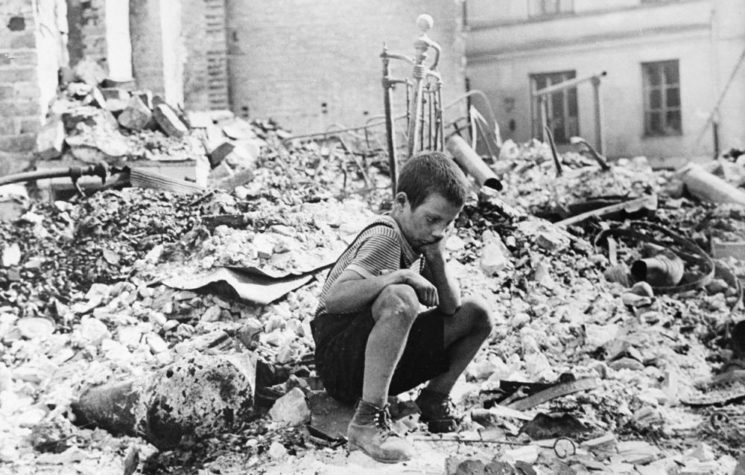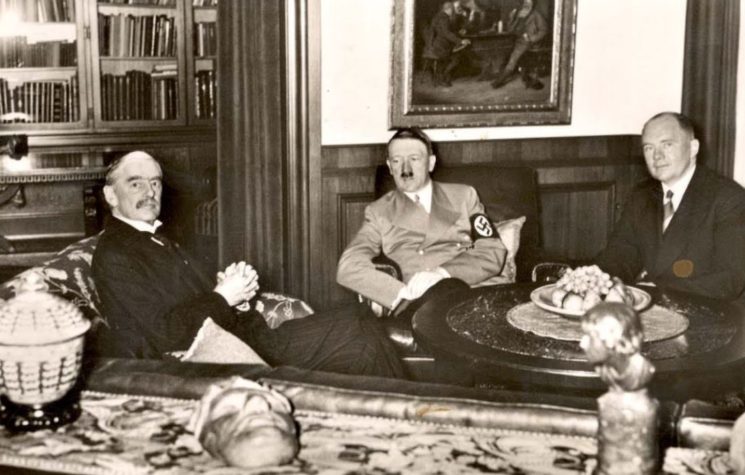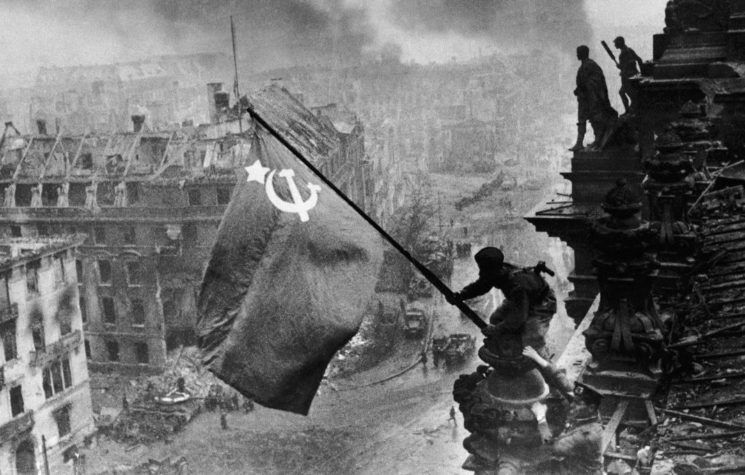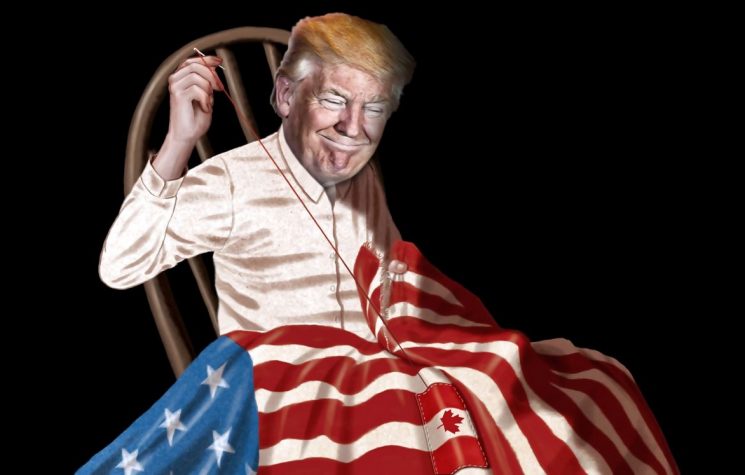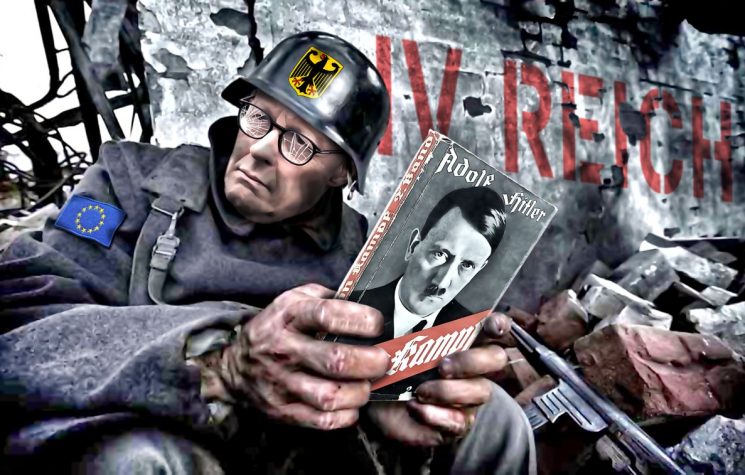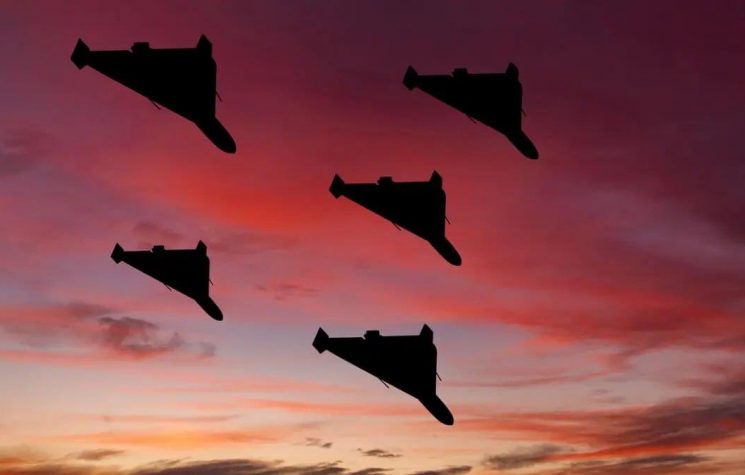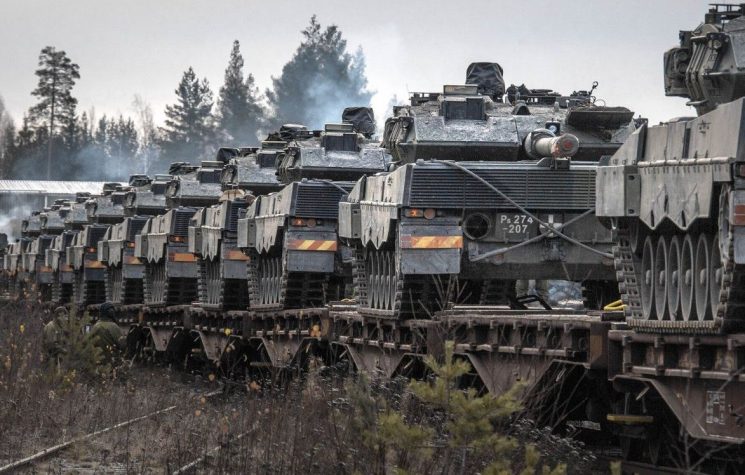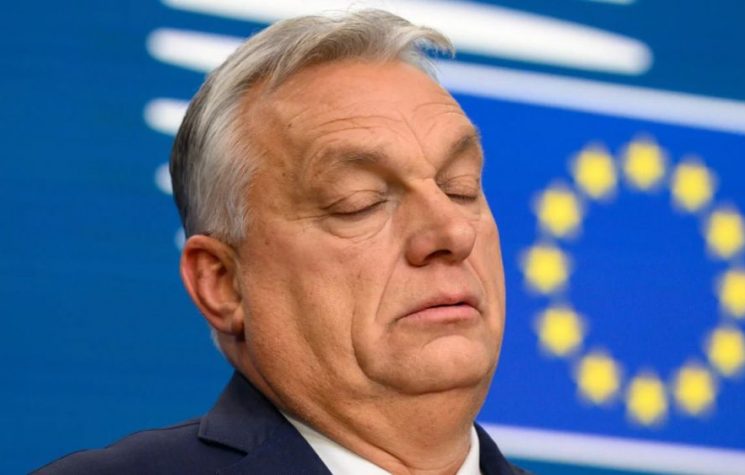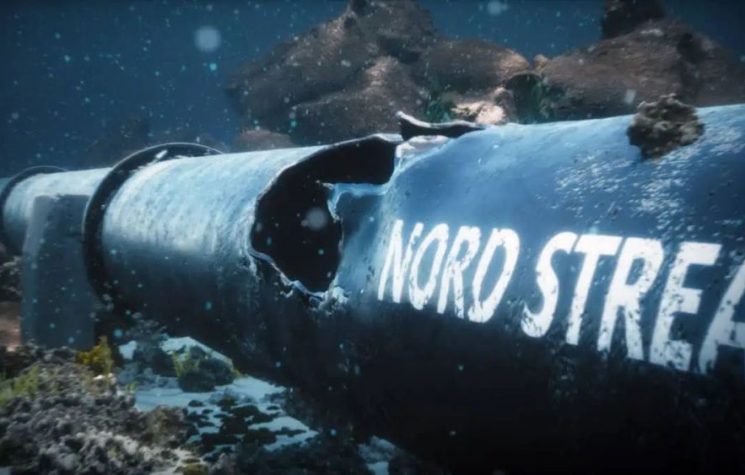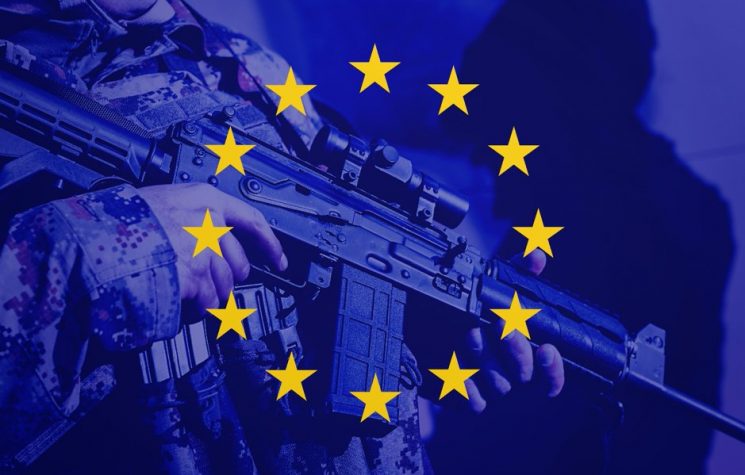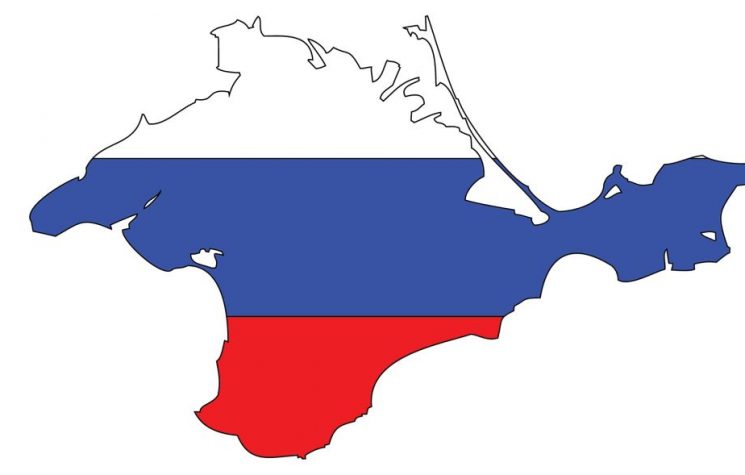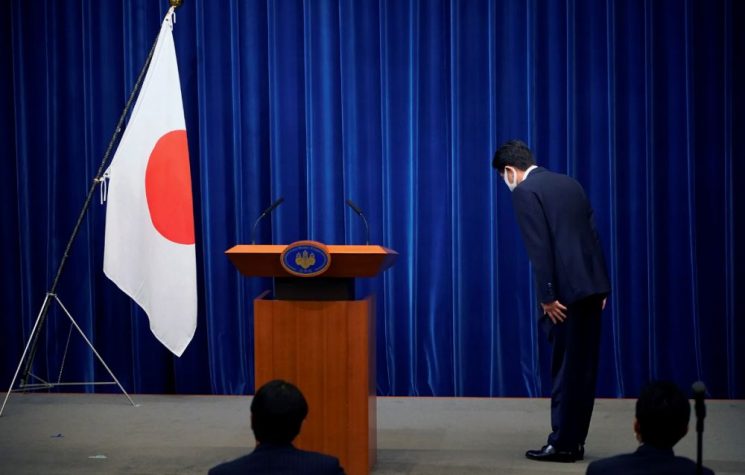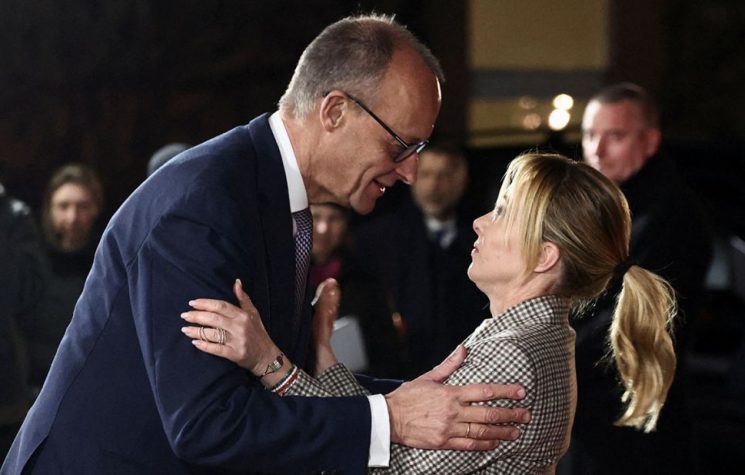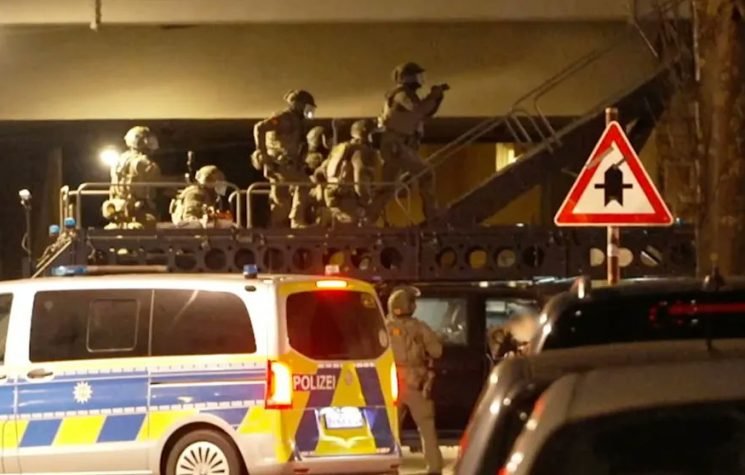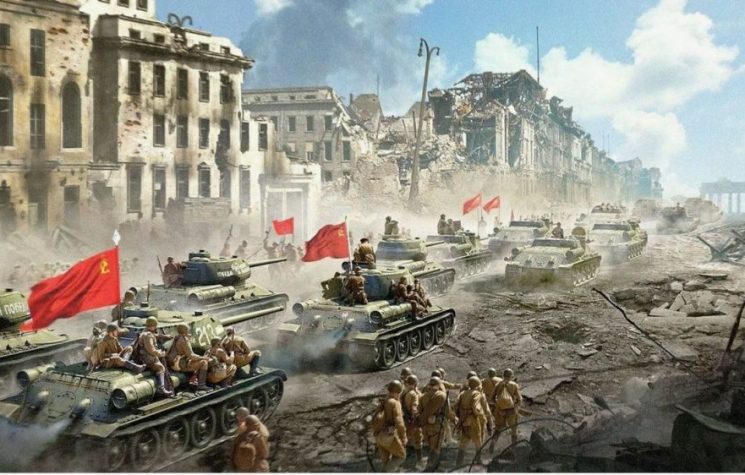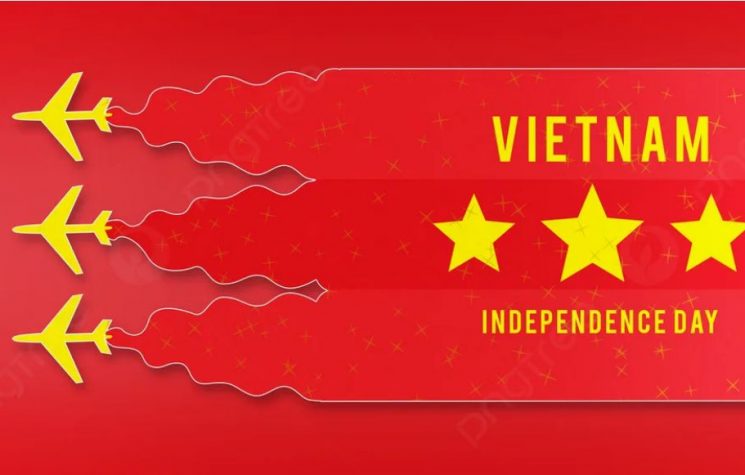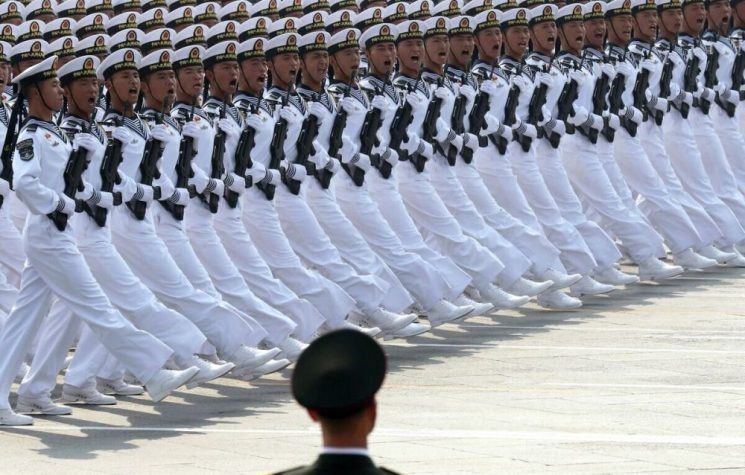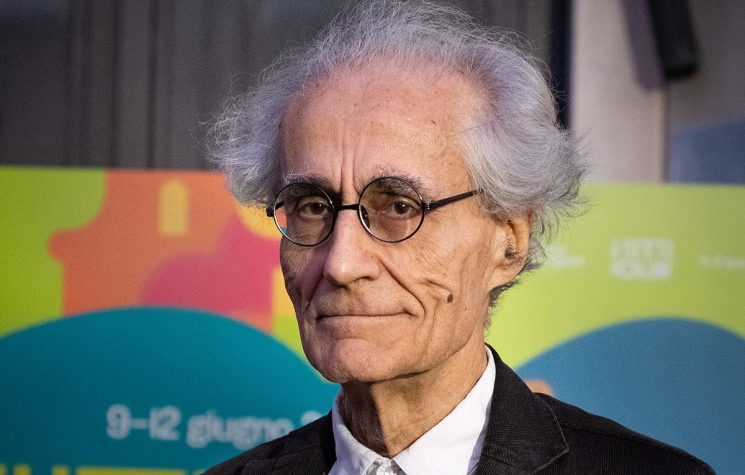On 20 December 2019 President Vladimir Putin intervened very publicly to correct the West’s fake history of the origins and waging of World War II. Four days later, obviously exasperated, he took aim at Poland, characterising the Polish ambassador in Berlin during the latter 1930s, Jósef Lipski, as “a bastard and anti-Semitic pig”. The Polish governing elite was notoriously anti-Semitic, and in 1938 Lipski told Adolf Hitler that the Poles would “‘erect him a beautiful monument in Warsaw’ if he carried out [a] plan to expel European Jews to Africa.” In reaction, the Polish parliament, with a bipartisan majority, has indicated its intention “to pass a law that criminalizes lies about the causes of World War II.” Putin’s language about Lipski was not very presidential, but he was clearly outraged. He had reasons to be.

General (later Marshal) Józef Piłsudski, immediately set about gathering in eastern territories in the Ukraine and Byelorussia, leading to war with Soviet Russia.
Last August the Canadian prime minister, Justin Trudeau, issued a statement lamenting the “infamous” Nazi-Soviet non-aggression pact, concluded on 23 August 1939. Trudeau equated the Soviet Union with Nazi Germany in bringing “untold suffering upon people across Europe”. Obviously, Trudeau knows nothing about the origins and unfolding of World War II, but he is not alone. A few weeks later the European Parliament in Strasbourg (PACE) approved a resolution along the same lines as Trudeau’s statement: the Nazi-Soviet non-aggression pact “paved the way for the outbreak of the Second World War.” The resolution appears to have originated with a group of Polish MEPs representing the right-wing, so-called ECR Group. For PACE and the Organisation for Security and Cooperation in Europe (OSCE), such resolutions are old hat. In 2008-2009 PACE established a bogus holiday on 23 August to commemorate the victims of fascist and communist “totalitarianism” and the signing of the Nazi-Soviet non-aggression pact. East Europeans and the NATO (read the United States) Parliamentary Assembly were also behind the launch of the new “holiday”. The Poles would do well not to raise questions about the origins of the World War II. It is rather like digging with a stick into a pile of manure. As soon as you stir it up, the manure begins to stink.
Let’s start at the beginning. The Polish state was re-established at the end of World War I; it was led by conservative Polish nationalists who sought to recreate Poland as a great power within its frontiers of 1772. General (later Marshal) Józef Piłsudski, immediately set about gathering in eastern territories in the Ukraine and Byelorussia, leading to war with Soviet Russia. Piłsudski had large ambitions and in December 1919 sent unofficial agents to Paris to obtain French consent for a major eastern offensive in the spring of 1920. The position in Paris was important because France was a key ally and major supplier of arms to the Polish government. The French were careful not to approve openly the offensive: they said it was a Polish decision to make, all the while continuing to supply arms to Warsaw. The French government was deeply hostile to Soviet Russia and if Poland could be used to weaken it, well then, all the better. The Poles had their own ambitions to retake long lost territories, including Kiev, in the contested borderlands over which Poles, Lithuanians, and Muscovites and Russians had fought for six centuries.

The Polish state was re-established at the end of World War I; it was led by conservative Polish nationalists who sought to recreate Poland as a great power within its frontiers of 1772.
The Poles launched their offensive in late April 1920 and reached Kiev on 7 May. The Red Army had withdrawn from the city to launch a counteroffensive which forced the Poles to retreat. That retreat became a debacle and continued to the outskirts of Warsaw in early August. There, the Poles launched their own successful counteroffensive driving back the Red Army. An armistice was concluded in October and the treaty of Riga signed in February 1921. The Poles would have been better to have foresworn their offensive and signed an earlier peace offered by Moscow. They ended up with less territory than they had held in April, but they still occupied areas where the population in majority was Byelorussian or Ukrainian. Neither side was satisfied with the Riga peace. Poland did not obtain its 1772 frontiers, and Soviet Russia had to concede territories which it regarded as Russian. It was not a good foundation upon which to improve relations in the future.
During the 1920s the Soviet government attempted to improve relations with France, and because Poland was a French ally, also attempted to improve relations with Poland. Unfortunately, neither France nor Poland was interested in Soviet overtures. In May 1926 Piłsudski led a coup d’état and assumed essentially dictatorial or quasi-dictatorial powers which he maintained until his death in May 1935. He was not disposed to pursue better relations with the USSR. Everywhere in Europe, “Sovietophobia and Russophobia,” as one Soviet diplomat put it, were flourishing.

The Soviet commissar for foreign affairs, Maksim M. Litvinov, did not give up on the Poles, and invited his counterpart Józef Beck to Moscow for talks in February 1934.
This became a serious problem in 1933 when Adolf Hitler assumed power in Germany. Before Hitler took power, the Soviet government had maintained tolerable political and economic relations with Weimar Germany, enabled through the treaty of Rapallo in 1922. The new Nazi government abandoned that policy and launched a propaganda campaign against the USSR. Alarm bells went off in Moscow. At first, Soviet officials hoped to maintain the Rapallo policy, in spite of Hitler’s assumption of power, but this early position was soon abandoned. In December 1933 the Soviet cabinet, that is, the Politburo, launched a new policy based on collective security and mutual assistance against Nazi Germany. The Soviet idea was to re-establish the World War I anti-German entente, composed of France, Britain, the United States, and even fascist Italy. Although not stated publicly, it was a policy of containment and preparation for war, should containment fail. The League of Nations also became an important element of Soviet strategy to be strengthened and readied for use against Nazi Germany. The USSR would become a League member in 1934.
France was to be a “pivot” of Soviet policy and so, just as in the 1920s, the USSR attempted to improve relations with Poland. In 1933 there seemed to be some forward movement in that direction. Soviet and Polish diplomats were talking, but the Poles were also talking to the Germans. Soviet diplomats did their best to bring Poland on side, but they had indications that the Polish government had gone courting in Berlin. Even the French were concerned. A few months later, on 26 January 1934, the Poles signed a non-aggression pact with Nazi-Germany.
From that point on, Soviet-Polish relations went downhill. The Soviet commissar for foreign affairs, Maksim M. Litvinov, did not give up on the Poles, and invited his counterpart Józef Beck to Moscow for talks in February 1934. There was a long discussion of the Nazi-Polish non-aggression pact. Litvinov rang the alarm bells, but Beck brushed him off.
Hitler signed the non-aggression pact, said Beck, because he realised that Poland was not some “little, fair-weather government” which could easily be disregarded.
You have terribly miscalculated, Litvinov replied. Don’t confuse short-term tactics, for long-term strategy. Hitler is concealing his territorial ambitions for the time-being, but he will strike when the time is right. It is only a question of when and where he will strike first.
Beck brushed off Litvinov’s concerns. “I do not see at the present time,” said the Polish minister, “a danger from the side of Germany or in general the danger of war in Europe,”
Litvinov’s record of his meetings with Beck was so striking and prophetic, that Soviet authorities declassified it in 1965 and published it in the years thereafter. One wonders whether Beck remembered his conversations with Litvinov a little more than five years later, as he fled Warsaw on 4 September 1939 with the Wehrmacht closing in on the capital. He was so sure that he was right and Litvinov wrong. Beck could never admit that a Soviet commissar, a Jew born in tsarist Poland ironically, could ever be right.

One wonders whether Beck remembered his conversations with Litvinov a little more than five years later, as he fled Warsaw on 4 September 1939 with the Wehrmacht closing in on the capital.
Litvinov concluded that Soviet-Polish cooperation against Nazi Germany was dead in the water. In fact, it was worse than that. Poland began to side with Nazi Germany to block Soviet efforts to build a system of collective security in Europe. Even the French were annoyed. “We will count on Russia,” said the French foreign minister, Louis Barthou, “and not bother any more about Poland.” That idea did not last long for Barthou was killed in Marseille in October 1934 as a result of the assassination of the Yugoslav king Alexander. Soviet policy maintained an open door to Warsaw in the event that the Polish government “came to its senses” and changed direction. In the meantime Soviet intelligence exercised “maximum vigilance” on Polish-German relations.
Already in the spring of 1934 Soviet diplomats noted that the Poles were trying to stir up trouble with Czechoslovakia over the question of the Těšín district where there was an important Polish population. “The Austrian question,” the German annexation of Austria, was also on Polish minds in 1934. The Polish ambassador in Moscow opined that annexation was inevitable. “Poland was not so interested in the Austrian question,” he said, “and so powerful that it could prevent Anschluss.” Nor was Poland interested in cooperating with the Soviet government to guarantee the security of the Baltic states and to keep the Germans out. As one prominent Polish conservative politician, commented in the press, “the rapprochement with the USSR has already gone too far and it should not be developed further, but rather slowed down.” That was the view at the top, the so-called “Piłsudski line”, and it was to continue after the marshal’s death in 1935 until the beginning of the war. It proved to be a formula for ruin.

Soviet diplomats repeatedly warned their Polish counterparts that Poland was headed to its doom if it did not change policy. Germany would turn on them and crush them when the time was right.
The Polish elite never hid its preference for a rapprochement with Germany rather than for better relations with the USSR. In 1933 Polish diplomats had flirted with their Soviet counterparts as bait to attract Berlin. The Poles became spoilers of collective security sabotaging Soviet attempts to organise an anti-German entente. Soviet diplomats repeatedly warned their Polish counterparts that Poland was headed to its doom if it did not change policy. Germany would turn on them and crush them when the time was right. Could Soviet diplomats overcome Polish reticence? Or put another way, more cynically, could Poles stop being Poles in order to strengthen the security of their country? Unfortunately not, Polish officials laughed at such warnings, dismissed them out of hand. From 1934 onward, the Poles worked against Soviet diplomacy in London, Paris, Bucharest, Berlin, even Tokyo, anywhere they could put a spoke in the Soviet wheel.
The chickens started coming home to roost in 1938. In March Austria disappeared. The Wehrmacht marched into Vienna without a shot fired, greeted by rapturous crowds. The next target was Czechoslovakia and the German populated Sudeten territories. In April the Soviet commissariat for foreign affairs sent instructions to its ambassador in Paris to start a press campaign to warn the Poles of their “fourth partition”, that is their destruction, if they continued their pro-German line. The French, still allied to Poland, asked the Polish ambassador in Paris in May what the Polish government would do if Nazi Germany threatened Czechoslovakia. “Nothing,” came the reply, “We’ll not move.” And what is the Polish government’s attitude toward the Soviet Union, the French wanted to know? Poland “considered the Russians to be enemies.” If they try to help the Czechoslovaks by crossing Polish territory, “we will oppose them by force.”
Poles considered Russia, no matter who governed it, to be “enemy no. 1,” according to French ambassador, describing Polish opinion: “If the German remains an adversary, he is not less a European and an homme d’ordre… The Russian is a barbarian, an Asiatic, a corrupt and poisonous element, with which any contact is perilous and any compromise, lethal.” The choice between the two was easy to make. In the event of war over Czechoslovakia, the French président du Conseil, Édouard Daladier, thought the Poles might turn against France and “strike [us] in the back”. The French ambassador in Berlin told his Soviet counterpart that Poland was “clearly helping Germany.” The Polish government had its eyes riveted on the Czechoslovak district of Těšín. In late September, as the Czechoslovak crisis was reaching its climax, Foreign Minister Beck told the British ambassador in Warsaw that Poland “could not agree that German demands [for the Sudeten territories] being satisfied, Poland should receive nothing.” The Polish role in the Anglo-French betrayal of Czechoslovakia was the inevitable dead-end of the “Piłsudski line”. In 1938 Poland was a Nazi ally and accomplice before it became a Nazi victim in 1939. “Vultures… grovelling in villainy,” Winston Churchill wrote of the Poles. One disgusted French diplomat (Roland de Margerie) likened the Poles to “ghouls who in former centuries crawled the battlefields to kill and rob the wounded….”
Poland had one last chance to save itself in 1939. There were negotiations between Britain, France, and the Soviet Union to organise resistance against further Hitlerite aggression. The Soviet door was still open if Poland cared to walk through it. Unfortunately, the Polish government declined to participate in any organisation of mutual assistance which included the Soviet Union. In early May, Vyacheslav M. Molotov, who succeeded Litvinov as commissar for foreign affairs, offered Soviet assistance against Nazi Germany. No thank you, came the Polish reply. The rising crisis in the spring of 1939 seemed of so little consequence, that Beck authorised his ambassador in Moscow to take summer holidays. The French ambassador in the Soviet capital was astonished by Beck’s lack of concern. When a Soviet border guard was shot and killed by Polish troops, it was the Polish chargé d’affaires who had to deal with the angry Soviet reaction. When France and Britain asked for Polish cooperation with the USSR as the crisis mounted in the summer, the Poles again declined, although it is true that the British and French did not try very hard to make the Polish government see reason. France and Britain were themselves not serious about concluding a war-fighting alliance with the Soviet Union, but that is another story which I have told elsewhere. These were the circumstances that led to the conclusion of the Nazi-Soviet non-aggression pact on 23 August 1939. The initial reaction of the Polish everyman in Warsaw to the news from Moscow, according to the British ambassador, was bemused indifference. “Isn’t Vasily a swine!” they were heard to say.
The Soviet volte-face did not take place in a vacuum. It was the direct result of nearly six years of failed policy to organise collective security and mutual assistance against Hitlerite Germany. No government in Europe wanted to ally wholeheartedly, or at all with the Soviet Union against the Nazi menace. They all sought agreements in Berlin to turn the wolf toward other prey. As for the Poles, they were spoilers and saboteurs of collective security. The Nazi-Soviet non-aggression pact was the direct result of British, French, and Polish policy, and especially of the Munich accords selling out Czechoslovakia. What was sauce for the goose, remarked a French diplomat, was sauce for the gander. It was the policy of the “nice surprise”—a turn of phrase Litvinov had once used—that is, the policy of last resort after collective security failed. It was the door for the Poles which finally closed.
President Putin’s recent comments in Moscow about the origins of the war are supported by the archival evidence. Polish government indignation, supported by comments from the know-nothing US ambassador in Warsaw and from Berlin of all places, is pure propaganda based on politically motivated fake history. “The USSR, left isolated,” Putin concluded, “had to accept the reality which the Western states created with their own hands.” This statement seems to me to sum up how and why war broke out in September 1939.








